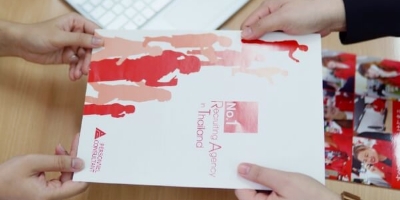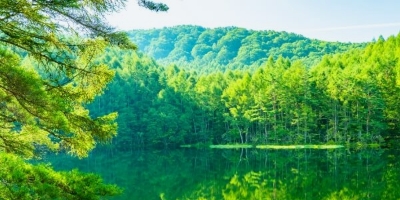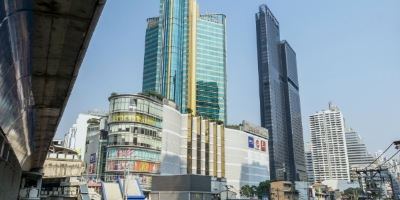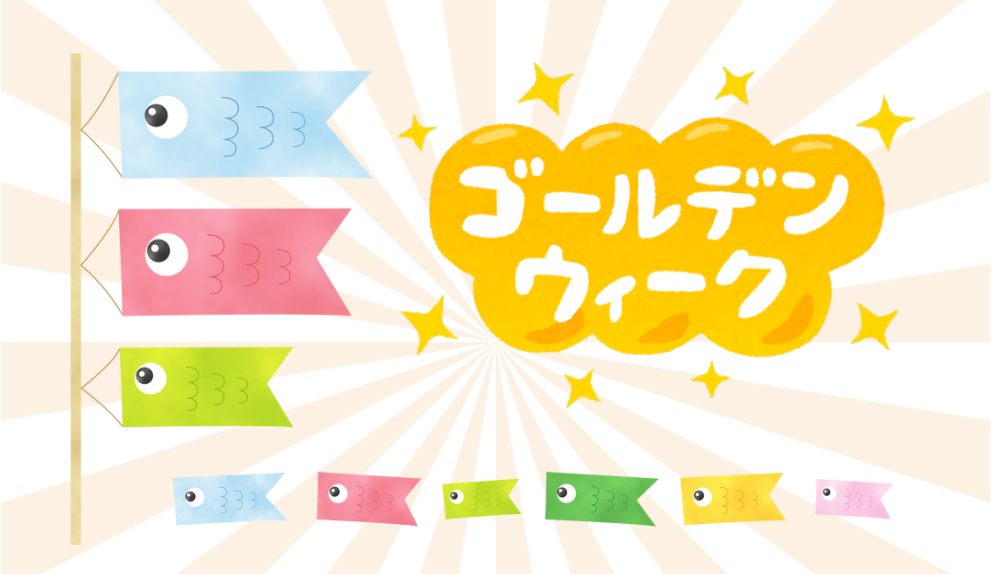
What is Golden Week and why is it called Japan’s “Golden Week”?
“Golden Week” (in Japanese: ゴールデンウィーク / Gōruden Wīku) is one of the most important long holiday periods in Japan. It typically occurs from late April to early May each year and includes several national holidays in a row. Many companies and organizations allow employees to take continuous days off, and in some cases, the entire week may be a holiday.
What are the key holidays during Golden Week?
- April 29 – Shōwa Day (昭和の日 / Shōwa no Hi): This is the birthday of Emperor Shōwa (Hirohito). It’s a day for the Japanese to reflect on the Shōwa Era, a period of significant social and economic change and post-war reconstruction.
- May 3 – Constitution Memorial Day (憲法記念日 / Kenpō Kinenbi): Commemorates the enactment of the post-WWII constitution, which emphasizes individual rights, peace, and democracy.
- May 4 – Greenery Day (みどりの日 / Midori no Hi): A day to appreciate nature and the environment. It officially became a public holiday in 2007.
- May 5 – Children’s Day (こどもの日 / Kodomo no Hi): A celebration especially for boys. Families decorate their homes with carp streamers (Koinobori) and samurai dolls. Traditional Kashiwa Mochi (oak leaf-wrapped red bean mochi) is eaten, with wishes for the children’s health, courage, and happiness.
Some years may have additional holidays. If a weekday falls between two national holidays, it may be designated as a “substitute holiday,” creating a longer vacation period of 7 to 10 days.
Why is it called Golden Week? The term “Golden Week” originated from the film industry in 1951 when movie ticket sales peaked during this holiday period. Hideo Matsuyama, managing director of Daiei Film (a major film company), coined the term “Golden” to highlight this peak earning period. At the time, the Japanese media used the term “Golden Time” to refer to high-rating time slots—similar to what we call “prime time.” The term spread to other industries and became widely used across Japan from around 1952–1953.
Source: https://www.school.ojsat.or.th/japan-golden-week/
What do Japanese people do during Golden Week?
- Travel domestically or abroad: Many people use the time to travel, especially to natural or historical sites, hot springs, or just relax at home doing hobbies like reading or watching movies.
- Return to hometowns or spend time with family: Similar to Thailand’s Songkran Festival, some people visit family in rural areas.
- Join local festivals: Particularly on Children’s Day, you’ll see homes decorated with carp streamers (Koinobori), wishing children strength and growth.
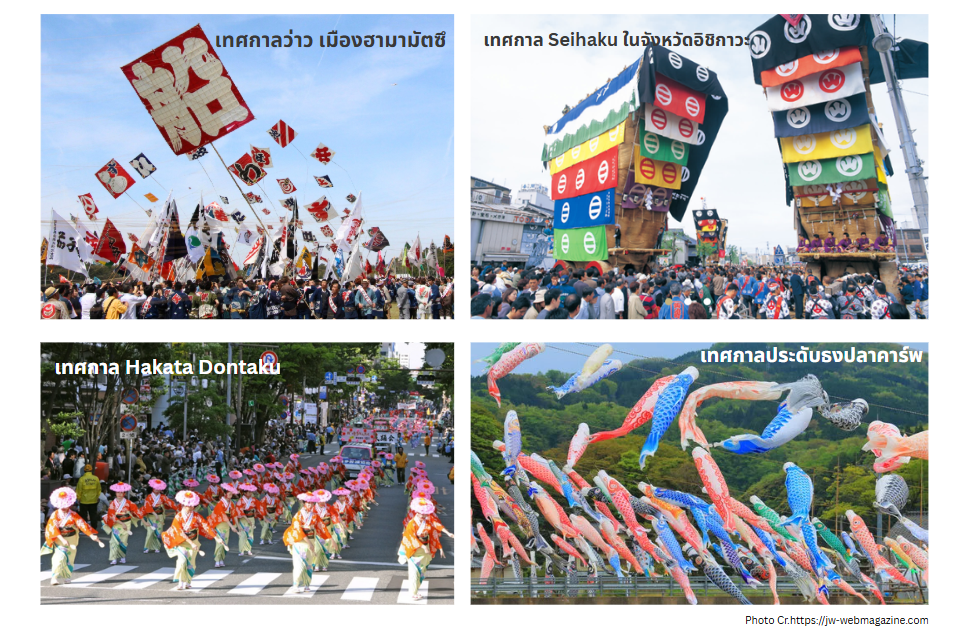
Examples of Major Festivals during Golden Week
- Koinobori Festival (こいのぼり): Celebrated on Children’s Day (May 5), colorful carp streamers are hung at homes and public spaces to wish children—especially boys—health, bravery, and success. Inspired by the Chinese legend of the carp that swims upstream to become a dragon, this festival is celebrated in various places like Tokyo Tower and Tokyo Skytree. Read more info : JNTO
- Hamamatsu Kite Festival (浜松まつり – Hamamatsu Matsuri): Held from May 3–5 in Hamamatsu, Shizuoka Prefecture. Over 450 years old, the festival’s highlight is the flying of giant kites at Nakatajima Sand Dunes, each bearing the name of a newborn child. There’s also a nighttime parade of illuminated wooden floats (Yatai).
More info : Hamamatsu-Japan - Hakata Dontaku Festival (博多どんたく): Held on May 3–4 in Fukuoka, this is one of Japan’s largest festivals. It features a massive parade, traditional costumes, music, and dance. The word “Dontaku” comes from the Dutch word “Zondag,” meaning Sunday or holiday. Read More info: Japan.travel
- Seihaku Festival (青柏祭 – Seihaku-sai): Takes place in Noto City, Ishikawa Prefecture from May 3–5. It’s known for its enormous wooden floats (Deki-yama), standing over 10 meters tall—among the largest in Japan. This thousand-year-old festival is registered as an Important Intangible Cultural Property. Read More info:Ishikawatravel
There are also many other regional festivals held during Golden Week. See more at JW-webmagazine
Things to Know for Tourists or Businesses During Golden Week
- For Tourists: Tourist sites can be extremely crowded, and travel and accommodation prices usually spike. If you’re planning to visit Japan during this time, make sure to book flights, hotels, and transport well in advance. However, it’s also the perfect time to experience traditional Japanese culture and seasonal decorations.
- For Businesses: Many Japanese companies close during Golden Week. If you’re doing business with Japanese partners, avoid expecting prompt replies or arranging critical meetings during this period.
Golden Week is not only a great time to visit Japan, but also a unique chance to immerse yourself in authentic cultural experiences. Just remember—plan ahead if you want to make the most of your trip!
Personnel Consultant , we’re Japanese recruitment agency company in Bangkok.
We has been in the business of recruiting Thai and Japanese talent for 30 years.
Companies looking for talent & staffing , please contact us through this form https://www.personnelconsultant.co.th/en/contact/
Tel.02-2608454 Email : jobs@personnelconsultant.co.th


